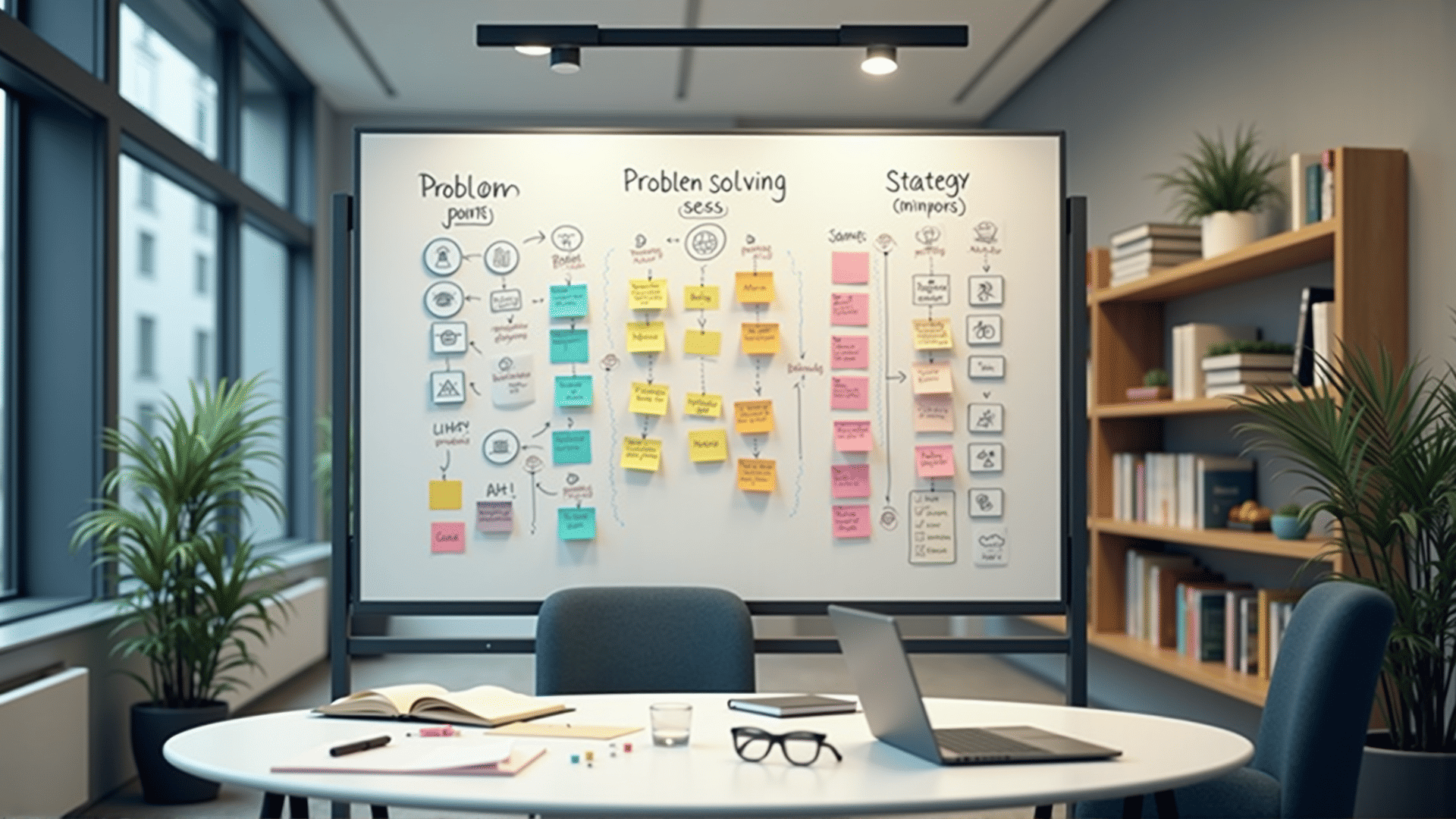In today's rapidly changing world, encountering obstacles is a commonplace experience. Whether in professional settings or everyday life, developing effective strategies for tackling these hurdles is crucial. By honing skills in this area, individuals can address challenges with confidence and clarity. Here are some innovative approaches to problem-solving that can be applied in various contexts:
-
Define and Understand the Problem: Before diving into solutions, it's essential to have a comprehensive understanding of the problem at hand. Take the time to dissect the issue, breaking it down into smaller, more manageable components. Ask questions to uncover the root cause, ensuring that the focus is directed at addressing the underlying issue rather than merely its symptoms.
-
Think Creatively: Creativity can be a powerful tool in problem-solving. Stepping outside conventional thinking patterns allows for innovative ideas to flourish. Techniques such as brainstorming or mind mapping can facilitate this process. Encouraging diverse viewpoints and considering unconventional solutions often leads to breakthrough moments.
-
Apply Systems Thinking: Systems thinking involves viewing a problem as a part of a larger system. By understanding how different elements within the system interact and influence one another, individuals can predict the impact of various solutions. This approach not only aids in solving the problem at hand but also helps in preventing future issues.
-
Use Data and Evidence: Gathering data provides an objective basis for decision-making. Analyze relevant information, identifying patterns and trends that can inform potential solutions. Evidence-based strategies increase the likelihood of success by grounding decisions in factual information rather than assumptions.
-
Collaborate with Others: Teamwork can significantly enhance problem-solving efforts. Collaborative approaches leverage the strengths and diverse perspectives of all participants. Open communication and active listening within a group can unearth a variety of solutions and ensure that the most effective one is implemented.
-
Reflect and Adapt: After implementing a solution, it is important to evaluate its effectiveness. Reflection allows individuals to learn from the experience, identifying what worked well and what could be improved. Being open to feedback and willing to adapt strategies as necessary ensures continual improvement and success.
-
Stay Resilient: Persistence is key in overcoming obstacles. Challenges can be difficult and setbacks are inevitable, but maintaining a resilient mindset is crucial. Approach problems with a positive attitude and the willingness to keep trying until an effective solution is found.
Adopting these strategies can transform the way individuals and teams address problems, turning challenges into opportunities for growth and innovation. By fostering these skills, people can not only solve immediate issues but also enhance their overall approach to complex situations in the future.
